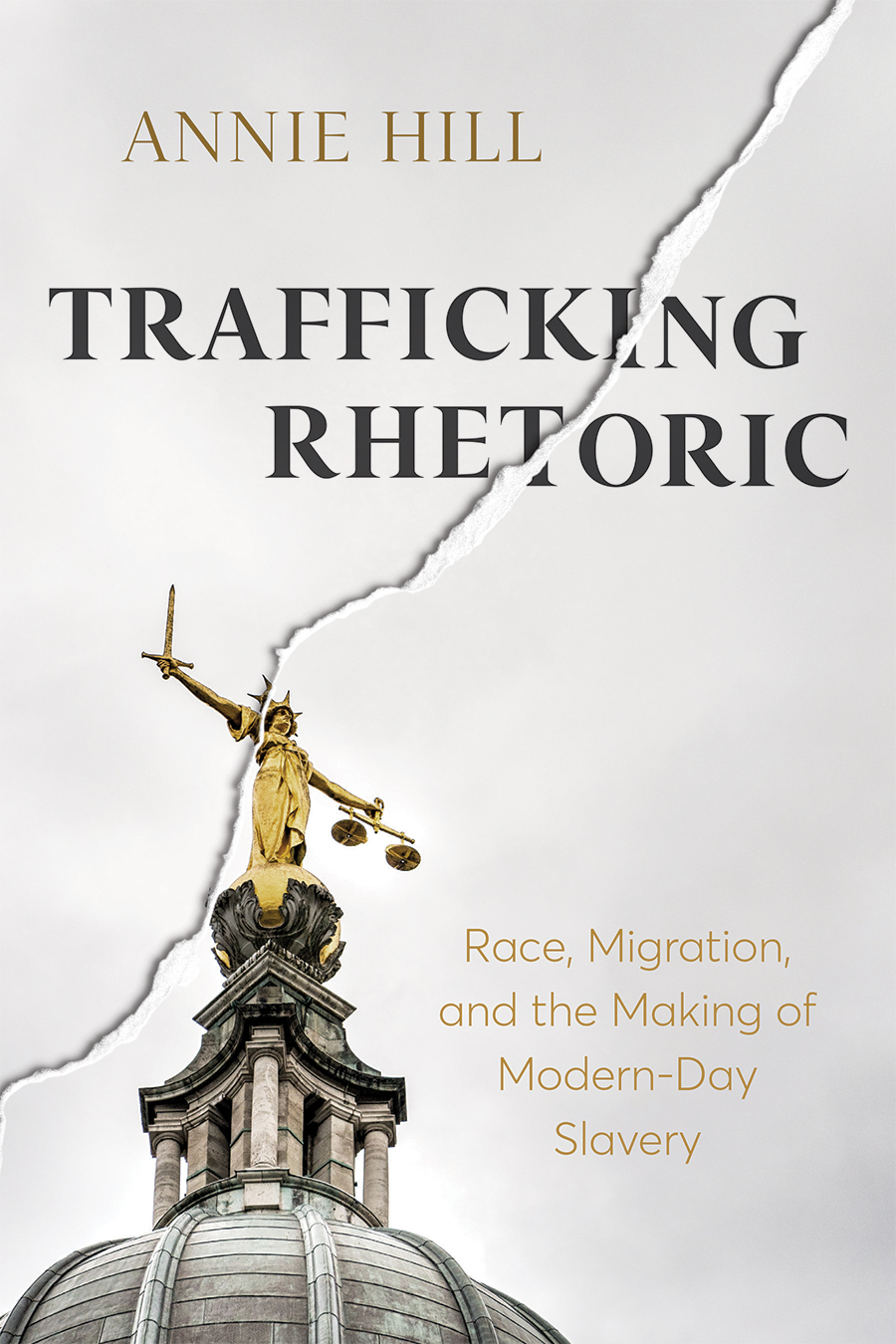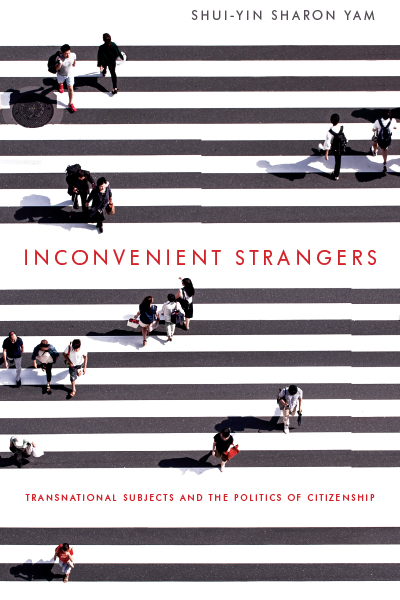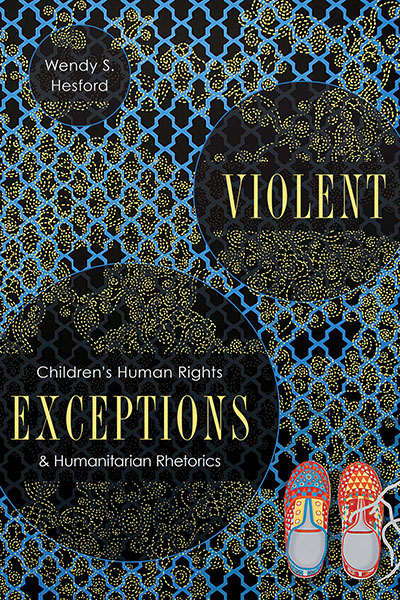Honorable Mention, 2025 Marie Hochmuth Nichols Award from the National Communication Association’s Public Address Division
“This book is timely, great to read, and important for our current political context. Hill makes us consider what happens when flawed logic and rhetoric inform state initiatives. In the current environment where we risk lies propagating policy change, we can learn so much from examining how such rhetoric has impacted policy previously and continues to do so.” —Sonia C. Arellano, Constellations
“Trafficking Rhetoric makes a significant contribution to our understanding of how benevolent discourse can mask malignant intent....Hill compellingly demonstrates how the discourse around trafficking has been deployed to advance nationalist and anti-immigrant agendas.” —Tahliah Ling, Women’s Studies in Communication
“Trafficking Rhetoric...not only pushes the field of rhetoric to be less myopic and US-centric, but it also emphasizes the importance of holding a nation and government accountable for its history of colonialism and violence, which ultimately displaces and enacts violence against marginalized populations.” —Mia Banuelos, E3W: Ethnic and Third World Literatures
“Trafficking Rhetoric considers the rarely studied rhetoric of policy and its relationship to popular media campaigns. Hill’s readings connect race, gender, and nation to trace how antitrafficking rhetoric exposes British anxieties and racism around what it means to be British.” —Rebecca Dingo, author of Networking Arguments: Rhetoric, Transnational Feminism, and Public Policy Writing
“Hill demonstrates how major UK antitrafficking campaigns hinged on limited, if not biased, reports that conflated foreign women with prostitutes, and both with victims of trafficking, to justify anti-immigrant policies. Trafficking Rhetoric brings a feminist lens to trafficking studies, migration, rhetoric, and state policy in novel and compelling ways.” —Julietta Hua, author of Trafficking Women’s Human Rights
Human trafficking has generated intense global concern, with stories of sex slavery and images of women forced into prostitution so persuasive that states have raced to respond ahead of empirical data and clear definitions of the crime. In Trafficking Rhetoric, Annie Hill analyzes the entanglement of state veneration and state violence by tracking how the United Kingdom points to the alleged crimes of others in order to celebrate itself and conceal its own aggression. Hill compares the UK’s acclaimed rescue approach to human trafficking with its hostile approach to migration, arguing that they are two sides of the same coin—one that relies on rhetorical constructions of “trafficked women” and “illegal migrants” to materialize the UK as an Anglo-white space.
Drawing from official estimates, policy papers, NGO reports, news stories, and awareness campaigns and situating them in the broader EU context, Hill accounts for why the UK’s antitrafficking agenda emerged with such rhetorical force in the early twenty-first century. Trafficking Rhetoric reframes controversies over labor, citizenship, and migration while challenging the continued traction of race-baiting and gender bias in determining who has the right to live, work, and belong in the nation.
Annie Hill is Assistant Professor in the Department of Rhetoric and Writing at the University of Texas at Austin and Affiliate in the Department of Women’s, Gender, and Sexuality Studies, the Department of African and African Diaspora Studies, and the LGBTQ Studies Program.
Contents
List of Illustrations
Acknowledgments
Introduction The Torque of State Veneration and State Violence
Chapter 1 Speculative Figures: The Rhetorical Material of Trafficking Estimates
Chapter 2 Anti-Blackness by Analogy: Human Trafficking as Modern-Day Slavery
Chapter 3 Glaring Whiteness: Trafficking Visual Rhetoric and Tropes of Blindness
Chapter 4 “A Really Hostile Environment for Illegal Migrants”: State Violence, Misery, and Immobility
Conclusion The Disappearing Right to Remain
Bibliography
Index





